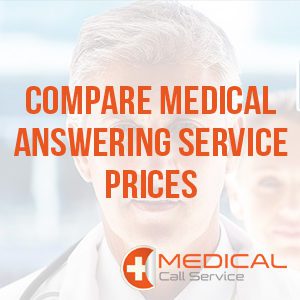
Medical Call Services: How to Evaluate and Compare Costs for Healthcare Providers
Medical call services are an essential component of modern healthcare practices, helping providers efficiently manage patient communications, appointment scheduling, and after-hours support. However, understanding the cost structure of these services and comparing providers can be challenging. In this blog, we will discuss the various factors that influence the cost of medical call services and provide guidance on how to evaluate and compare providers to make the best choice for your practice.
The Role of Medical Call Services in Healthcare Practices
Before diving into the costs, it’s essential to understand the vital role that medical call services play in healthcare practices:
- Appointment scheduling: Medical call services can manage appointment bookings, rescheduling, and cancellations, streamlining the process for patients and administrative staff.
- After-hours support: Medical call services often provide after-hours support, answering urgent patient questions and connecting them with on-call providers when necessary.
- Reminder calls: Medical call services can help reduce no-shows by making reminder calls or sending text messages to patients before their appointments.
- Patient triage: Some medical call services offer patient triage, helping determine the urgency of a patient’s needs and directing them to the appropriate care.




Factors Influencing the Cost of Medical Call Services
Several factors can influence the cost of medical call services, including:
Call Volume
One of the most significant factors affecting the cost of medical call services is the number of calls your practice receives. Most providers charge based on the call volume, with a higher volume resulting in a higher cost.
Pricing Model
Medical call service providers may use different pricing models, such as:
- Per-minute pricing: Providers charge a fee for each minute their agents spend on the phone with patients.
- Per-call pricing: Providers charge a flat fee for each call, regardless of its duration.
- Monthly subscription: Providers charge a fixed monthly fee for a specific number of included calls or minutes, with additional fees for exceeding the limit.
Understanding the pricing model used by each provider can help you compare costs and determine which model best aligns with your practice’s needs.
Level of Service
The level of service provided by the medical call service can also impact the cost. More comprehensive services, such as patient triage or appointment scheduling, may come at a higher price compared to basic after-hours answering services.
Customization and Integration
Providers that offer customization options or integration with your practice’s existing software, such as electronic health record (EHR) systems, may charge additional fees for these services.




Evaluating and Comparing Medical Call Service Providers
When comparing medical call service providers, consider the following steps:
- Determine your practice’s needs: Assess the call volume, type of support needed, and any specific requirements such as EHR integration or customization options.
- Request quotes: Contact multiple providers and request quotes based on your practice’s needs. Make sure to ask about any additional fees or charges that may apply.
- Compare pricing models: Evaluate the pricing models used by each provider and determine which one best aligns with your practice’s call volume and needs.
- Evaluate service quality: Consider factors such as agent training, response time, and customer reviews when comparing providers.
- Calculate potential ROI: Estimate the potential return on investment by considering factors such as improved patient satisfaction, reduced administrative workload, and increased appointment bookings.
Making an Informed Decision
Understanding the costs associated with medical call services is crucial for healthcare providers looking to optimize their patient communication and support. By considering factors such as call volume, pricing model, level of service, and customization options, medical providers can make an informed decision when selecting a medical call service provider.
Average Cost of Medical Call Services
The cost of medical call services can vary significantly depending on factors such as call volume, level of service, and pricing model. On average, the cost of medical call services can range from $0.70 to $1.50 per minute, or $20 to $40 per hour, depending on the provider and the specific services they offer.
However, some providers may offer a monthly subscription plan, which can cost anywhere from $150 to $1,000 or more per month, depending on the included call volume, minutes, and additional features. Keep in mind that these are average costs, and the actual price you pay may vary based on your practice’s unique needs and the provider you choose.


What to Look for When Choosing a Medical Call Service
When selecting a medical call service provider, there are certain features to look out for that can help ensure you get the best possible service. It is important to first evaluate your practice’s call volume, the type of support needed, and any specific requirements such as EHR integration or customization options. However, there are a few key things all medical call services should provide. When selecting a medical call service provider, consider the following factors:
HIPAA Compliance:
It’s crucial to choose a provider that is fully HIPAA compliant to protect your patients’ sensitive health information and avoid potential legal issues.
Training and Expertise:
Look for providers that invest in training their agents in medical terminology, patient confidentiality, and best practices for handling sensitive patient information.
Customization and Integration:
Choose a provider that can customize their services to suit your practice’s needs and integrate with your existing systems, such as EHR software.
Reliability and Availability:
Ensure that the provider offers reliable service with minimal downtime, as well as 24/7 availability to handle after-hours calls.
Response Time:
Look for providers that can guarantee a fast response time to ensure that your patient’s needs are addressed promptly.
Customer Reviews and Testimonials:
Research the provider’s reputation by reading customer reviews and testimonials, which can provide valuable insight into the quality of their services.
Scalability:
As your practice grows, you may need to increase the volume of calls handled by your medical call service. Choose a provider that can scale their services to meet your changing needs.
By carefully considering these factors and comparing providers based on their costs, services, and reputation, you can make an informed decision that best meets your practice’s needs and budget.
The Potential Cost Savings of Medical Call Services vs Full Time In-House Receptionists
As the healthcare landscape continues to evolve, practices and organizations of all sizes are searching for ways to operate more efficiently, improve patient care, and maintain a competitive edge. One area that often comes under scrutiny is the approach to managing patient calls. In this context, let’s explore the potential cost savings and benefits of using medical call services versus employing full-time in-house receptionists.
Understanding the Costs of Full-Time In-House Receptionists
Before diving into the cost savings, it’s important to understand the expenses associated with employing full-time in-house receptionists. These costs typically include:
- Salary: Receptionists’ salaries can vary widely based on geographic location and the size of the healthcare practice. However, according to the U.S. Bureau of Labor Statistics, as of 2022, the median annual wage for receptionists was $31,110.
- Benefits: On top of salaries, employers usually provide benefits such as health insurance, paid time off, and retirement contributions. These can add 20% to 30% or more to the base salary.
- Training and Recruitment: There are additional costs associated with hiring and training new employees. These costs increase if there’s a high turnover rate.
- Equipment and Office Space: Receptionists require office space and equipment, such as computers, telephones, and office supplies, all of which add to operating costs.




The Benefits and Cost Savings of Medical Call Services
Medical call services offer an alternative solution to handling patient calls that can lead to significant cost savings. Here’s why:
- Fixed Costs: Unlike in-house receptionists, medical call services usually charge a fixed rate based on the volume of calls or a flat monthly fee. This predictability can greatly simplify budgeting and forecasting.
- 24/7 Coverage: Medical call services typically operate 24/7. In contrast, to provide round-the-clock coverage, a practice would need to hire multiple receptionists, which would significantly increase costs.
- Reduced Overhead: With a call service, there’s no need to pay for office space, equipment, benefits, or training, as these are all covered by the service provider.
- Improved Efficiency: Medical call services use trained professionals and advanced technologies to handle calls efficiently and accurately. This can reduce errors, increase patient satisfaction, and free up time for in-house staff to focus on core healthcare duties.
A Comparative Look at the Costs
To illustrate the potential cost savings, let’s consider a small practice with two in-house receptionists. Assuming an average salary of $31,110 per receptionist, plus benefits and overhead costs, the annual expenditure could easily reach $80,000.
In contrast, a medical call service might charge a monthly fee of $1,000 for a comparable volume of calls, totaling $12,000 per year. That’s a potential saving of $68,000, or over 80%.
While cost savings are a major draw, the decision to switch to a medical call service should also take into account other factors, such as the quality of patient interactions, data security, and the service provider’s healthcare knowledge. However, for many practices, the potential cost savings combined with the benefits of improved efficiency and round-the-clock coverage make medical call services an attractive option.
The Advantage of Medical Call Services for Small Businesses
Small healthcare businesses often operate on thin margins, so finding cost-effective solutions that don’t compromise the quality of care is vital. Medical call services can be particularly beneficial for these small businesses.
- Off-Peak Office Hours: With traditional office-based receptionists, handling patient calls outside of office hours can be a challenge. However, medical call services provide 24/7 coverage, ensuring no call goes unanswered even during off-peak hours.
- Handling High Call Volumes: Small practices often face times of high call volumes that can overwhelm in-house receptionists. Medical call services have the capability to handle these spikes efficiently, reducing wait times and increasing patient satisfaction.
- Service Pricing: Medical call services often provide flexible pricing options, allowing small businesses to choose a plan that fits their budget and call volume. This flexibility ensures businesses only pay for what they need.
- Freeing Up Medical Professionals: By outsourcing call handling, medical professionals within the practice can focus on providing quality care rather than answering phones. This not only leads to improved patient care but also a more efficient use of in-house resources.




Business Owners and Medical Call Services
As a business owner, your primary goal is to ensure your practice operates efficiently and provides excellent patient care. Medical call services can play a pivotal role in achieving this goal.
- Cost-Efficiency: As illustrated earlier, the cost savings from using a medical call service can be substantial. This can have a significant impact on your bottom line, particularly if you’re operating a small practice with limited resources.
- Enhanced Patient Experience: Patients appreciate quick, professional responses to their calls. Medical call services provide just that. By ensuring that every call is handled efficiently and professionally, you can enhance the overall patient experience, which in turn can lead to higher patient retention and referrals.
- Data Management: Medical call services often use advanced technologies to track and manage call data. This data can provide valuable insights into patient behavior, peak call times, and other metrics that can help improve practice operations.
For many practices, large or small, the advantages of medical call services go beyond the significant potential cost savings. They also include improved efficiency, enhanced patient care, and valuable business insights. As such, they represent a compelling solution for modern healthcare practice.
Types of Services Offered by Medical Call Centers
Medical call centers, also known as medical answering services, play a crucial role in the healthcare industry. Their services go far beyond simply answering calls, as they act as an extension of the medical practice, providing several vital services that contribute to improved patient care and efficient practice management. Let’s delve into some of the key services offered by medical call centers.
- Appointment Scheduling: This is one of the fundamental services provided by a medical call center. Having a dedicated service for managing appointments can significantly streamline the process, making it easier for patients to book, reschedule, or cancel appointments. This reduces the administrative burden on the medical practice, allowing the staff to focus more on patient care.
- Prescription Renewal Requests: Patients often need assistance with prescription renewals, which can be a time-consuming task for medical practices. A medical call center can efficiently handle these requests, coordinating with both patients and healthcare providers to ensure a seamless renewal process.
- Patient Follow-Up Calls: Post-appointment follow-ups are crucial in healthcare as they help ensure the effectiveness of treatment and patient satisfaction. Medical call centers can systematically manage these follow-up calls, ensuring patients are recovering well and adhering to their treatment plans.
- Emergency Dispatch: Many medical call centers offer emergency dispatch services, ensuring that urgent calls are handled promptly and professionally. They can connect patients with on-call doctors, and emergency services, or provide necessary instructions while help is on the way.
- Patient Reminders: Whether it’s appointment reminders, medication reminders, or reminders for regular health check-ups, medical call centers play a vital role in patient management. These reminders are critical for ensuring patient adherence to treatment plans and reducing no-show rates for appointments.
- Answering Queries: Call centers can answer general queries from patients, such as office hours, directions to the clinic, or information about treatments and services offered. This service reduces the workload on the clinic’s staff, allowing them to focus on more complex tasks.
- After-Hours Support: One significant advantage of medical call centers is that they can provide after-hours support. Whether a patient has an urgent question about their medication or needs to schedule an appointment, they can do so without having to wait for regular office hours.
These services not only reduce the workload of healthcare professionals but also enhance patient satisfaction and care. By providing these services efficiently and promptly, medical call centers ensure that healthcare practices function smoothly, ultimately leading to better patient outcomes.


Training and Qualifications of Medical Call Center Staff
A vital factor in the success of medical call services lies in the training and qualifications of their staff. Medical call center operators deal with sensitive patient information and health-related inquiries, making their role significantly different from a standard call center agent. Consequently, they must be equipped with specialized skills and training to handle such tasks. Here’s an overview of the extensive training and qualifications required for medical call center staff.
- Medical Terminology Training: The first step in their training often involves familiarizing themselves with medical terminology. This is crucial, as they must be able to understand and use this terminology correctly when communicating with patients, doctors, and other healthcare professionals.
- Communication Skills Training: A high level of communication skills is paramount in the healthcare industry, particularly for those in patient-facing roles. Call center agents are trained to listen actively, empathize with patients, and communicate clearly and effectively.
- HIPAA Training: In the United States, medical call center operators must be trained to comply with the Health Insurance Portability and Accountability Act (HIPAA). This act sets the standard for protecting sensitive patient data, and any entity dealing with protected health information (PHI) must ensure they meet HIPAA requirements.
- Emergency Response Training: Some medical call center agents also undergo emergency response training. This ensures they are prepared to handle high-pressure situations and can provide appropriate guidance or dispatch emergency services if needed.
- Customer Service Training: Excellent customer service is at the heart of medical call center operations. Agents receive extensive training to handle inquiries, complaints, and requests professionally, always aiming to provide high-quality service that meets or exceeds patient expectations.
- Software Training: Medical call centers often use specialized software for appointment scheduling, patient information management, and more. Therefore, agents undergo training to effectively navigate and use these systems.
- Continuous Education: Given the constant changes and advancements in the healthcare industry, continuous education is critical. Medical call center staff often participate in ongoing training to stay updated on new practices, guidelines, and regulations.
The rigorous training and qualifications of medical call center staff are critical for maintaining high service standards. They enable staff to handle a variety of situations and inquiries, provide accurate and relevant information, and ultimately contribute to better patient experiences and healthcare delivery.
The Role of Technology in Medical Call Services
Technology has become a cornerstone in almost every industry, and healthcare is no exception. Medical call centers now employ various technological tools and innovations to deliver superior service and improve operational efficiency. Here’s how technology, such as Artificial Intelligence (AI) and machine learning, is reshaping medical call services.
Automated Call Distribution
In medical call services, incoming calls need to be managed efficiently to ensure prompt response times. Automated Call Distribution (ACD) systems are widely used to distribute incoming calls to the available agents in the order they are received, reducing wait times and enhancing customer satisfaction.
AI and Machine Learning
AI technology plays an instrumental role in improving the quality and efficiency of medical call services. For instance, AI-powered chatbots can handle simple queries, appointment bookings, or prescription refill requests, freeing up human agents to handle more complex cases. Similarly, machine learning can analyze call patterns to predict high call volumes, enabling better staff allocation.
Electronic Health Record Integration
Many of the best answering services for medical offices can integrate with Electronic Health Records (EHR) systems. This allows them to access and update patient information during a call, providing personalized service based on the caller’s specific needs and medical history.
Speech Recognition
This technology is increasingly being used in medical call services to transcribe calls and voice commands. It ensures accurate documentation of patient interactions and assists in gathering valuable data for analytics.




Secure Data Storage and Transfer
With the sensitive nature of medical information, secure data storage and transfer are paramount. Technological tools like encrypted databases and secure file transfer protocols (SFTP) are used to maintain patient confidentiality and comply with data protection laws.
Real-time Reporting and Analytics
Real-time data is critical in the fast-paced medical care environment. Call center technologies provide live analytics and reporting features, enabling medical call centers to monitor key performance indicators (KPIs) and make data-driven decisions.
The integration of advanced technologies in medical call services greatly improves the quality of service provided to patients and healthcare practitioners. By leveraging these tools, medical call centers can handle high volumes of inbound calls more effectively, streamline patient interaction processes, and ensure the delivery of high-quality medical care over the phone.
Privacy and Security Considerations in Medical Call Services
In the medical industry, the privacy and security of patient data are of paramount importance. Here are some ways in which professional medical call services ensure the protection of sensitive information while managing calls, scheduling appointments, and dealing with emergencies.
- HIPAA Compliance: A reputable medical call service will always be HIPAA-compliant, meaning they follow the Health Insurance Portability and Accountability Act’s regulations for handling and protecting patient information. This compliance is not optional; it is a mandatory aspect of operating within the medical industry.
- Secure Infrastructure: Medical call centers have robust and secure infrastructures in place to safeguard patient data. This includes secure databases, firewalls, and other cybersecurity measures to prevent unauthorized access and potential data breaches.
- Data Encryption: When transmitting patient data, medical call services use advanced encryption methods to ensure the information cannot be intercepted and misused.
- Employee Training: All staff in a medical call center receive training on how to handle sensitive patient information. They understand the importance of confidentiality and are well-versed in the practices necessary to maintain it.
- Audit Trails: Medical call services often have systems in place to keep track of who has accessed what information. These audit trails are critical for maintaining accountability and can help identify any potential issues swiftly.
- Emergency Protocols: In the case of emergency calls, specific protocols are followed to ensure patient information is handled correctly and securely, without compromising the speed and efficiency of emergency response.
By entrusting your calls to a professional answering service well-versed in these security measures, healthcare providers can be confident that patient privacy is upheld, thereby maintaining their reputation and compliance with healthcare regulations.




How to Transition to a Medical Call Service
Transitioning from an in-house receptionist to a medical call service might seem daunting at first. However, with careful planning and consideration, the process can be smooth and rewarding for your medical practice. Here’s a step-by-step guide on how to make this transition, ensuring your practice continues to efficiently schedule appointments, handle medical calls, and provide additional services outside of normal business hours.
1. Understand Your Needs: The first step in transitioning to a medical call service is understanding your unique requirements. Consider factors like your call volume, the complexity of your needs (such as appointment scheduling or emergency call handling), and your desired level of customer service.
2. Research Potential Providers: Once you have a clear picture of what you need, start researching phone answering services. Look for those specializing in the medical field, as they will be familiar with industry-specific challenges and regulations.
3. Consider Costs: Evaluate the answering service cost against the potential savings and benefits. Remember, while there may be an upfront cost, a medical call service can save you money in the long run by reducing the need for full-time receptionist salaries, benefits, and training.
4. Check Compliance and Security: Ensure that your chosen service is compliant with healthcare regulations such as HIPAA. They should also have robust measures in place to secure patient data.
5. Plan the Transition: Decide when and how you will make the transition. Will it be a gradual change, or will you switch over entirely at once? Plan this out and communicate with all relevant parties.
6. Train Your Team: Make sure your staff understands the new system and processes. They need to know what will change in their day-to-day responsibilities and who to contact for support.
7. Implement Virtual Receptionist Services: Begin by forwarding your calls to the service. Monitor the process closely in the initial stages to ensure everything is running smoothly and address any hiccups promptly.
8. Regularly Review and Adjust: After implementation, regularly review the service’s performance. Use this feedback to make necessary adjustments and improve the effectiveness of your new system.
By following these steps, healthcare practitioners can successfully transition from in-house receptionists to a medical call service. With a dedicated service handling calls and scheduling appointments beyond normal business hours, medical professionals can focus more on their core duty – providing quality healthcare services to their patients.

Leave a Reply